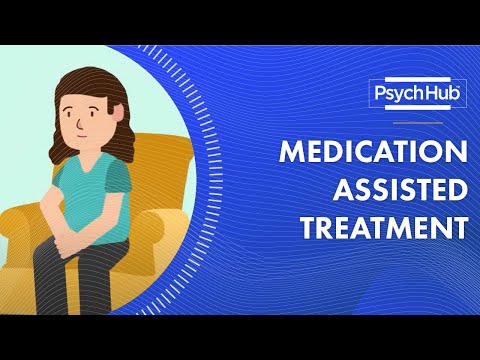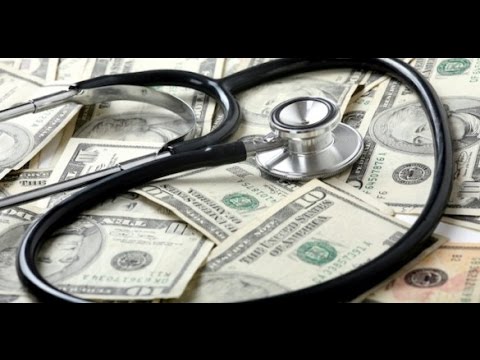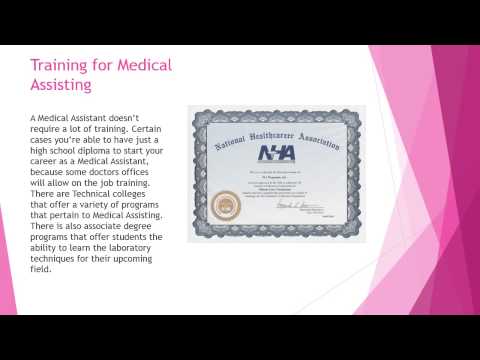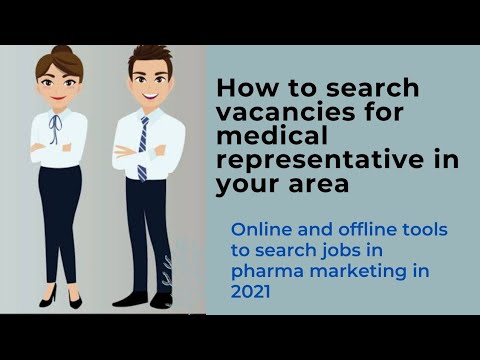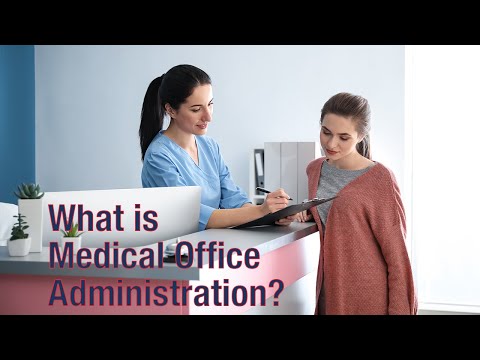Medication Assisted Recovery: What You Need to Know
Contents
- What is Medication Assisted Recovery?
- How Does Medication Assisted Recovery Work?
- What Medications are Used in Medication Assisted Recovery?
- What are the Benefits of Medication Assisted Recovery?
- What are the Risks of Medication Assisted Recovery?
- How Effective is Medication Assisted Recovery?
- Who Can Benefit from Medication Assisted Recovery?
- What are the Costs of Medication Assisted Recovery?
- How Do I Start Medication Assisted Recovery?
- Where Can I Find More Information on Medication Assisted Recovery?
Medication assisted recovery (MAR) is a treatment approach that combines medication with counseling and support to help people recover from addiction. MAR can be an effective treatment option for people who have struggled with addiction and want to overcome it.
Checkout this video:
What is Medication Assisted Recovery?
Medication Assisted Recovery is a treatment approach that combines medication with counseling and behavioral therapies to treat addiction. The goal of this type of treatment is to help people manage their addiction, so that they can live healthy and productive lives.
There are a number of different medications that can be used in Medication Assisted Recovery, including buprenorphine, methadone, and naltrexone. These medications can help to reduce cravings and withdrawal symptoms, making it easier for people to stick to their treatment plan. In addition, counseling and behavioral therapies can help people to develop healthy coping skills and changing their thinking around substance use.
How Does Medication Assisted Recovery Work?
When most people think of recovery from addiction, they think of complete abstinence from all substances. However, for some people, this is not possible or realistic. Medication assisted recovery (MAR) is an alternative approach that can help people struggling with addiction to opiates, alcohol, and other substances.
MAR involves the use of medication (such as buprenorphine or methadone) to help manage cravings and withdrawal symptoms. This allows people in recovery to focus on other aspects of their treatment, such as counseling and therapy.
While MAR is not right for everyone, it can be an effective treatment for those who are struggling with addiction and are unable to achieve abstinence. If you or someone you know is struggling with addiction, talk to a doctor or other healthcare provider to see if MAR might be a good option.
What Medications are Used in Medication Assisted Recovery?
There are many different medications that can be used in medication assisted recovery, but the three most common are methadone, buprenorphine, and naltrexone.
Methadone is an opioid agonist, meaning that it binds to the same receptors in the brain as other opioids like heroin and Oxycontin. This binding action limits the ability of other opioids to bind to those receptors, which reduces cravings and blocks the euphoric effects of those drugs. Methadone is a long-acting medication, which means that it can stay in the system for up to 24 hours. It is usually taken once a day, but some people may need to take it multiple times a day depending on their level of addiction.
Buprenorphine is also an opioid agonist, but it is a partial agonist, which means that it produces weaker effects than other opioids. Buprenorphine is also a long-acting medication, and it is usually taken once a day. Naltrexone is an opioid antagonist, meaning that it binds to opioid receptors but does not activate them. Naltrexone is usually taken once a day, but it can also be taken as needed for people who are at risk for relapse.
What are the Benefits of Medication Assisted Recovery?
Medication assisted recovery, often called MAR, is a treatment approach that combines medication with counseling and other therapies to help people recover from addiction. MAR can be an effective treatment for addiction to substances like alcohol, opioids, and other drugs.
There are many benefits of medication assisted recovery, including:
-Reduced cravings and withdrawal symptoms: One of the major benefits of MAR is that it can help to reduce cravings and withdrawal symptoms, making it easier for people to stay abstinent from substance use.
– improved mental health MAR can also help to improve mental health by treating underlying mental health conditions that may be contributing to substance use.
– improved physical health: Medications used in MAR can also help to improve physical health by treating conditions like pain or anxiety.
– increased likelihood of long-term recovery: Studies have shown that people who receive MAR are more likely to maintain long-term abstinence from substance use than those who do not receive MAR.
What are the Risks of Medication Assisted Recovery?
If you’re considering medication assisted recovery, it’s important to be aware of the risks involved. These include:
• Dependence on the medication: If you rely too heavily on the medication, you may become dependent on it. This can make it difficult to wean yourself off the medication and could lead to abuse.
• Side effects: All medications come with the risk of side effects. These can range from mild to severe, and in some cases, they can be life-threatening. Be sure to discuss all potential side effects with your doctor before starting any medication.
• Interactions with other medications: Some medications can interact with each other, which can lead to dangerous side effects. Be sure to tell your doctor about all other medications you’re taking, including over-the-counter drugs and supplements.
• Addiction: If you have a history of addiction, you’re at a higher risk for becoming addicted to the medication. This is why it’s important to discuss your history with your doctor before starting any medication.
How Effective is Medication Assisted Recovery?
There is a lot of debate surrounding the effectiveness of medication assisted recovery, but the truth is that it can be an effective tool for those struggling with addiction. Medication assisted recovery is a form of treatment that combines medication with behavioral therapy and other forms of support in order to help people recover from addiction.
There are a number of different medications that can be used in medication assisted recovery, but the most common are methadone and buprenorphine. These medications work by helping to reduce cravings and withdrawal symptoms, making it easier for people to stick to their treatment plan. In addition to medication, behavioral therapy and other forms of support are also important components of medication assisted recovery.
Behavioral therapy can help people change the way they think about their addiction and learn new skills for coping with stress and triggers. Other forms of support, such as 12-step programs or peer support groups, can also be beneficial. Medication assisted recovery is not a cure for addiction, but it can be an effective tool for those struggling to overcome their disease.
Who Can Benefit from Medication Assisted Recovery?
While there is no one-size-fits-all answer to this question, medication assisted recovery (MAR) can be an effective treatment option for people who have struggled with addiction for many years and have not been able to sustain long-term sobriety without the help of medication. MAR can also be helpful for people who have relapsed multiple times after trying to quit using drugs or alcohol on their own.
If you are considering MAR, it is important to work with a treatment provider who is experienced in this type of care and can help you determine if this is the right approach for you. MAR is not right for everyone, and it is important to consider all of your options before making a decision about treatment.
What are the Costs of Medication Assisted Recovery?
There is no one-size-fits-all answer to this question, as the cost of medication assisted recovery will vary depending on the type of medication used, the length of treatment, and the individual’s health insurance coverage. However, there are some general things you can keep in mind when considering the cost of medication assisted recovery.
First, it’s important to remember that medications used in medication assisted recovery are typically very costly. For example, buprenorphine – a common medication used in opioid addiction treatment – can cost up to $500 per month.
Secondly, while medication assisted recovery is often covered by health insurance there may be some out-of-pocket costs associated with treatment. These costs can include deductibles, co-pays, and coinsurance.
Finally, it’s also important to consider the indirect costs of medication assisted recovery. These costs include missed days of work, transportation expenses, and child care costs. When considering the cost of treatment, it’s important to factor in both the direct and indirect costs.
How Do I Start Medication Assisted Recovery?
There are a few things you need to do in order to start medication assisted recovery (MAR). First, you need to talk to your doctor. They will be able to prescribe you the medication you need and help you figure out the best dosage for your situation. You also need to make sure that you are committed to recovery. This means attending therapy sessions and support groups, and abstaining from drugs and alcohol. Finally, you need to be aware of the potential side effects of MAR medications. These can include drowsiness, nausea, and constipation. If you experience any of these side effects, talk to your doctor.
Where Can I Find More Information on Medication Assisted Recovery?
There are many resources available for those seeking more information on medication assisted recovery. Here are a few:
-The U.S. National Library of Medicine offers a comprehensive guide to understanding addiction and recovery, including information on Medication Assisted Treatment options: https://www.ncbi.nlm.nih.gov/books/NBK482468/
-The American Society of Addiction Medicine provides an overview of evidence-based treatments for addiction, including medication assisted recovery: https://www.asam.org/quality-practice/definition-of-addiction
-The Substance Abuse and mental health Services Administration offers a variety of resources on addiction and recovery, including a toolkit on medication assisted treatment: https://www.samhsa.gov/medication-assisted-treatment

